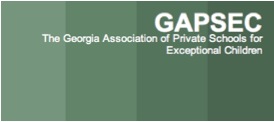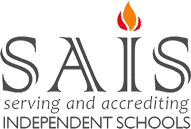Social-Emotional Learning (SEL)
At Porter Academy, we believe that Social-Emotional Learning (SEL) is critical for all students. According to the Collaborative for Academic, Social, and Emotional Learning (CASEL), SEL is “the process through which children and adults acquire the knowledge, attitudes, and skills they need to recognize and manage their emotions, demonstrate caring and concern for others, establish positive relationships, make responsible decisions, and handle challenging situations constructively”. A variety of research has linked social-emotional learning not only to social and emotional development, but also to physical health, citizenship, motivation to achieve, and academic learning. It is vital for schools and families to work together to teach children the skills they need to succeed socially and emotionally. Poor social-emotional skills have been shown to lead to mental illness (e.g., depression, anxiety) and behavior problems, both of which negatively impact learning.
At Porter Academy, we want our students to have strong social-emotional skills so they
- Are self-aware. They are able to recognize their emotions, describe their interests and values, and accurately assess their strengths. They have a well-grounded sense of self-confidence and hope for the future.
- Are able to regulate their emotions. They are able to manage stress, control impulses, and persevere in overcoming obstacles. They can set and monitor progress toward the achievement of personal and academic goals and express their emotions appropriately in a wide range of situations.
- Are socially aware. They are able to take the perspective of and empathize with others and recognize and appreciate individual and group similarities and differences. They are able to seek out and appropriately use family, school, and community resources.
- Have good relationship abilities. They can establish and maintain healthy and rewarding relationships based on cooperation. They resist inappropriate social pressure; constructively prevent, manage, and resolve interpersonal conflict; and seek and provide help when needed.
- Make responsible decisions at school, at home, and in the community. In making decisions, they consider ethical standards, safety concerns, appropriate social norms, respect for others, and the likely consequences of various courses of action. They apply these decision-making skills in academic and social situations and are motivated to contribute to the well-being of their schools and communities.
SEL and Intentional Character Education at Porter Academy
Porter Academy utilizes a variety of tools to help our students develop social emotional skills. These include the “Social Thinking” program, The Zones of Regulation, utilizing language and lessons to help our students develop a growth mindset, reading and discussing books that help students understand emotions and social relationships, hands-on activities, group discussions, role-playing, teamwork activities, and discussing real-life stressors as they arise and supporting the students as they learn healthy ways to respond.
Additionally, we select a character trait to emphasize each month. Teachers will lead activities and discussions to explain these character traits, and everyone who works with the children will provide verbal praise that references these character traits. Each month culminates with a Spirit Day and Full School Assembly to recognize our Kind, Responsible, Citizens who demonstrated positive character traits. The character traits focused on each month are as follows:
- August: Citizenship – I will make a positive difference to the place where I belong.
- September: Responsibility – I will do what needs doing, even when I don’t feel like it.
- October: Kindness – I will choose to help people feel good.
- November/December: Gratitude – I appreciate what I have.
- January: Tolerance – I appreciate the value in other people.
- February: Honesty – Be truthful in what you say and do.
- March: Flexibility – My willingness to change and compromise is what makes me strong – nothing can break me and I find ways to achieve my goals.
- April/May: Integrity – I will do what is right, even when no one is watching.
Motivational Techniques
We understand the importance of student engagement and intrinsic motivation to the learning process. Research has demonstrated that people better process and retain information from an experience if they’re emotionally engaged with the activity. Also, developing an enjoyment of learning will lead to a life-long internal drive to seek out new information and take responsibility for one’s own cognitive and developmental growth.
Our program includes techniques developed by Claudia Porter that have proven highly effective in building both self-esteem and intrinsic motivation. Teachers present challenges in a fun way and provide immediate positive feedback to students to encourage hard work and confidence. Additionally, we develop academic skills through engaging games and activities so as to more fully engage the students in the learning process. We encourage teamwork rather than competition, a sense of personal responsibility, and pride in excellence. We expect our students to work hard and achieve in accordance with their abilities.
Classroom Rewards
Homeroom teachers provide positive reinforcement to students individually as well as to the group as a whole.
Individually, students earn pennies (lower school) or dollars (upper school) when they are working hard, participating, helping classmates, cleaning up, or generally doing what is expected. The staff works hard to “catch students doing the right thing” and acknowledge and reward them immediately. As students collect the tokens, they can see their piggy banks/wallets getting fuller each time they make a good choice. The students then cash in their money for toys or activities.
Collectively, the homeroom group is also rewarded when they receive enough class compliments. When a specified number of class compliments are earned, the class votes on a reward. The reward can be a pajama day, movie and popcorn, sundae party, costume day, science experiment day, extra recess, or other activity voted on by the class and teachers.
This consistent positive reinforcement that students receive throughout each day supports the development of positive feelings about themselves and about school. And of course when people feel good about themselves and good about what they’re doing, they work harder and learn more efficiently.
Safari Bucks
To support the home-school connection, Claudia Porter developed a program that acknowledges and rewards our students for doing activities at home that are beneficial for their learning and development. This program is called Safari Bucks and has proven to be very successful.
For our Lower School students, we ask parents to rank their students based on the child’s activity choices and attitude each month:
- Gold star: parents feel happy with how their child uses their time outside of school; they spend a lot of their time doing beneficial/healthy activities (reading, homework, exercise, music, art, therapy, Fast ForWord, iLs, chores, educational games, etc)
- Silver Star: parents feel their child does some beneficial activities, but they would like to see them do more
- Red Star: parents are concerned about their child’s activity choices outside of school






